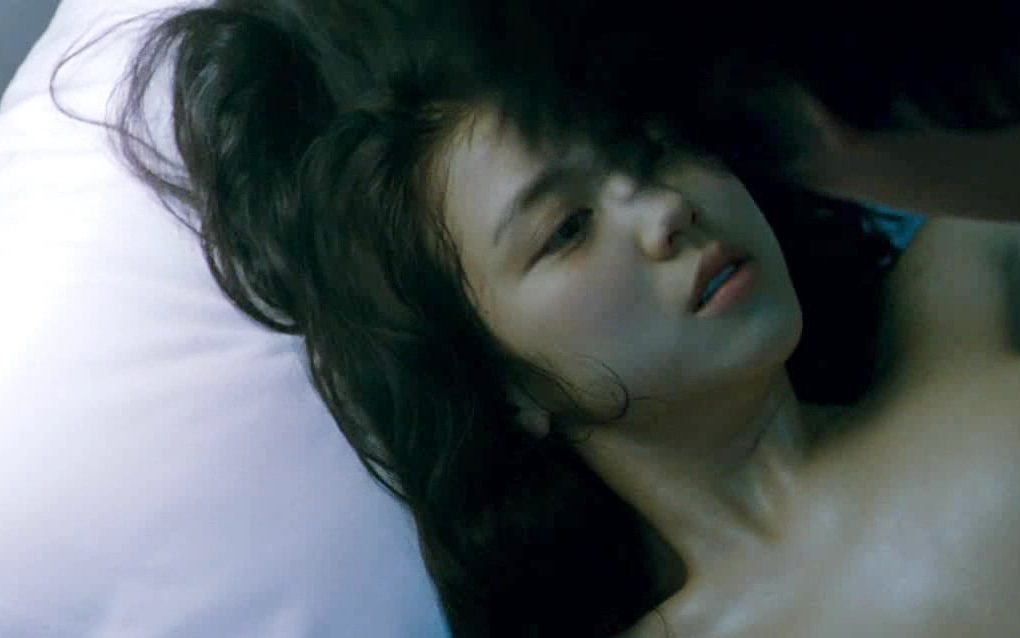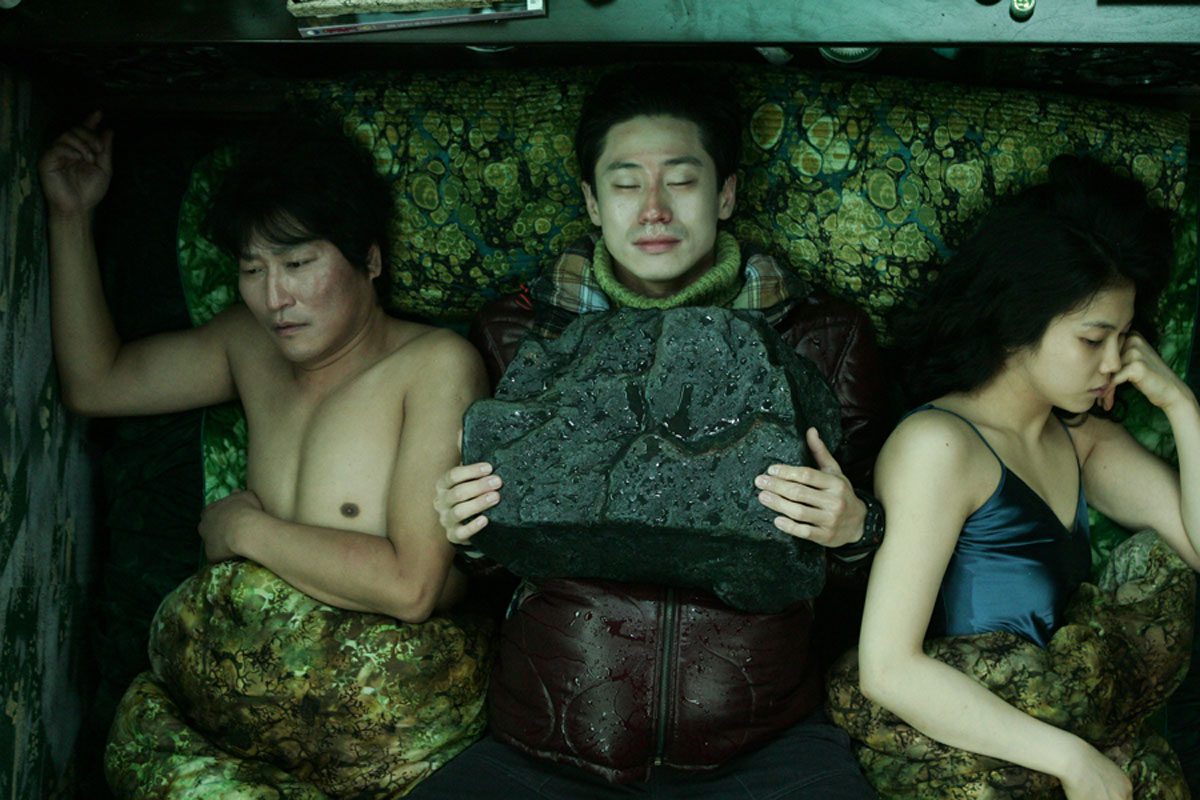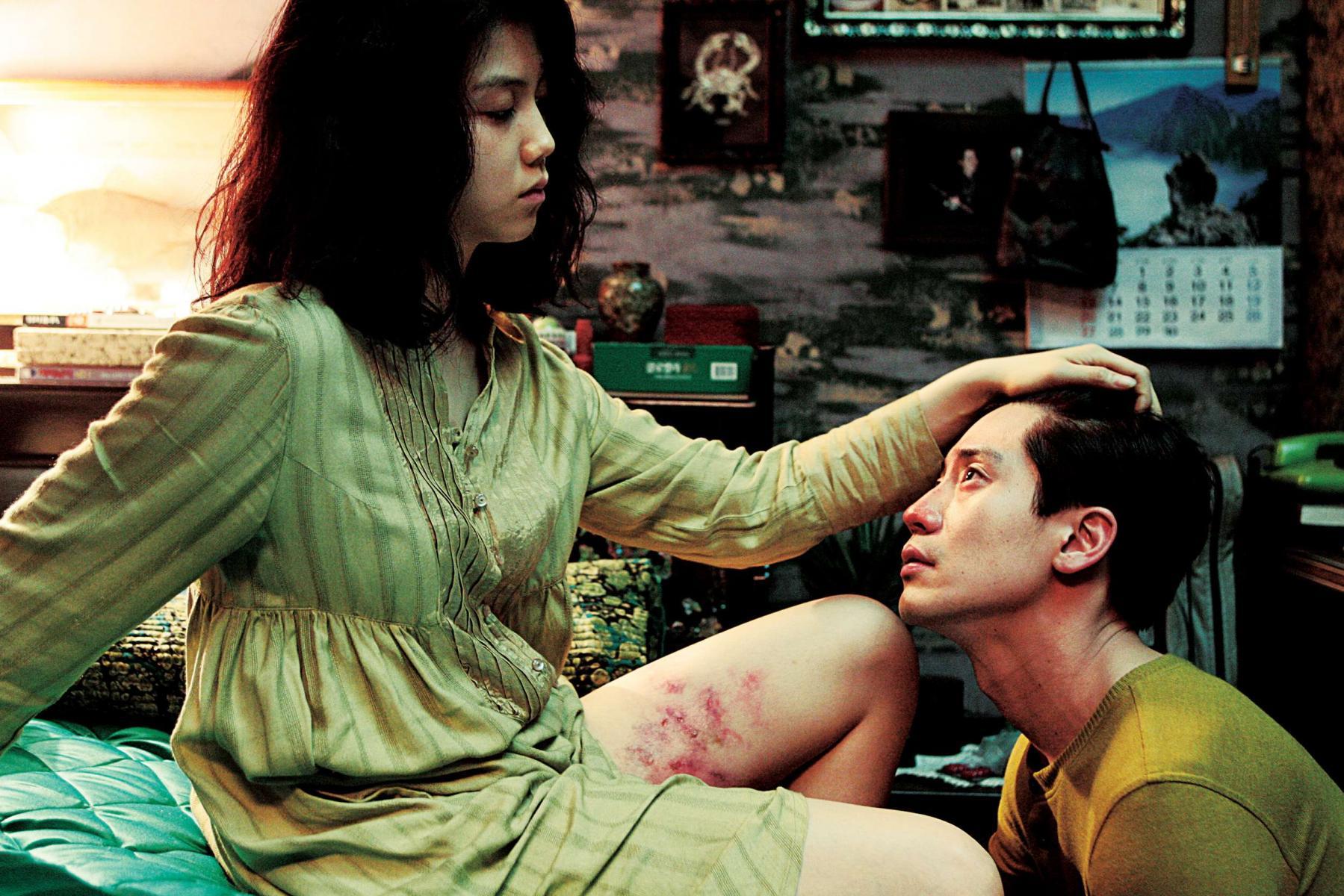In the vault of South Korean cinema, the 18+ film Thirst (2009) stands out as a unique piece of work: it combines vivid horror elements, profound artistry, and provocative themes that delve deep into complex moral dilemmas. This film is directed by Park Chan-wook—who is also known for Oldboy—and continues to challenge the distinct and audacious style he is known for: merging beauty with grotesqueness, sensuality with awkwardness, and innocence with depravity. Notably, Thirst features one of the most daring performances by Song Kang-ho and actress Kim Ok-bin.
True Love and Moral Corruption

Differing greatly from the romanticized vampire portrayals typical of Western cinema, Thirst constructs a universe where the undead do not eternally live in beauty but are instead depicted with raw, visceral elements that explore both flesh and spirit. The main character, Sang-hyun—a Catholic priest—volunteers for a medical experiment intending to help others, but contracts a deadly virus instead. He survives but must pay the price of becoming a vampire, thirsty for blood, predatory, and, most importantly, struggling with the dichotomy between innocence and depravity.
Park Chan-wook uses the vampire narrative as a framework to ask larger questions: Can a good person remain virtuous in a state of moral corruption? Can the thirst for blood translate to a thirst for love? And is predation a gift or a curse?
The striking—and highly controversial—relationship between Sang-hyun and Tae-ju (Kim Ok-bin), his childhood friend, serves as a focal point of the film. Initially, Tae-ju is a victim: oppressed, neglected, and overlooked by her family. However, upon meeting Sang-hyun, she begins to experience a yearning for life, love, and ultimately becomes a puppet master, ready to kill to satisfy her own desires.
The film’s erotic scenes are not merely for titillation but serve as a medium to convey deeper narratives. Director Park does not shy away from explicit portrayals, yet he also does not let them overshadow the plot. The sexual encounters are both intense and emotional—they depict two people scarred by their past seeking life within one another while ultimately plunging into darkness together.
Kim Ok-bin: The Most Controversial Female Lead in South Korean Cinema

When Thirst premiered in 2009, Kim Ok-bin was only 22 years old—a relatively new name in the South Korean film industry. However, her role as Tae-ju catapulted her into the spotlight as one of the most daring actresses, bravely confronting the challenges of portraying a character who is raw, desperate, and unapologetically sexual.
In the film, Kim Ok-bin shares numerous steamy scenes with Song Kang-ho—an actor nearly 20 years her senior. These intimate moments are not softened or romanticized as in many other Korean films but are presented directly, provocatively, and with a raw intensity. Some prolonged sequences draw out emotions, creating a profound connection that is both thrilling and psychologically invasive.
Critics laud Kim Ok-bin’s fearless representation, particularly when she does not shy away from using her body as a means of expression. Some argue that director Park Chan-wook “exploits” the actress, transforming Tae-ju into a symbol of female empowerment that defies conventional limits—something that could ignite controversy in a still-conservative South Korean society.
However, one cannot overlook that Kim Ok-bin has embodied the role with exceptional skill, transitioning from a girl to a woman who embraces her desires, culminating in a character that is both vulnerable and deadly. All of this is conveyed through her expressions, movements, and moments of silence laden with emotional weight. This breakthrough performance has earned her the title of the leading actress at the Blue Dragon Film Awards, a prestigious accolade in South Korean cinema.
Western critics have showered Kim Ok-bin with accolades, even comparing her to iconic actresses like Isabelle Adjani and Maria Schneider—both of whom have created art through roles that challenge societal norms while also reflecting complex human emotions.
Park Chan-wook and the Reversal of Societal Norms

What makes Thirst unique is Park Chan-wook’s construction of a moral universe that is inverted. Sang-hyun—a priest—represents the divine but is forced to kill to maintain his secret. Tae-ju—once a victim—becomes the one who wields power in their relationship. Killing is not simply evil; it is a survival instinct in a world where moral clarity is fuzzy.
The film does not merely present dilemmas or preach morality. Instead, it continuously challenges viewers: “If you were in that situation, what would you do?”—a recurring theme that Park Chan-wook excels at delivering.
Additionally, the director cleverly avoids heavy-handedness, ensuring the film does not drown in overly bleak atmospheres. There are moments that leave viewers questioning whether to laugh or cry—such as Tae-ju’s panic as she discovers Sang-hyun has “become a vampire” without her consent.
Awards and Controversies

Thirst received the Jury Prize at the 2009 Cannes Film Festival—one of the most significant achievements in Park Chan-wook’s career. However, back home in South Korea, the film faced mixed reviews. Some viewers struggled to accept the portrayal of a priest turning into a bloodthirsty vampire while others criticized the explicit content as “lacking respect for traditional Asian values.”
Like many of Park Chan-wook’s works (The Handmaiden, Oldboy), Thirst does not shy away from controversial themes: sexuality, religion, morality, and violence. Yet it is precisely these elements that have allowed the film to transcend the boundaries of typical horror cinema, transforming into a deeply artistic piece that explores the human condition.
Conclusion
Not everyone will appreciate Thirst, just as not everyone will embrace the challenges it presents. Yet if cinema serves as a medium to explore the depths of human psyche, then Thirst is a haunting point of contact that mesmerizes and captivates.
In the hands of Park Chan-wook, even a horror story about vampires can evolve into a tragic love story with philosophical undertones. In this universe, blood is not merely a life-sustaining fluid but a symbol of depravity, guilt, insatiable desire, and the price paid when crossing the boundaries of one’s own humanity.





















